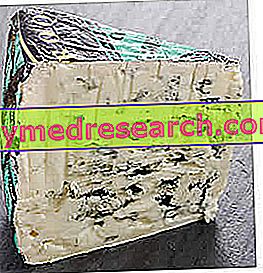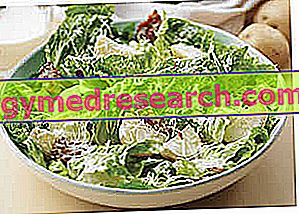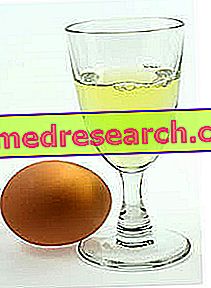The vegan or vegan diet is a diet that excludes animal products to the utmost. While in vegetarianism some foods - such as milk, cheese, eggs and honey - are allowed, they are not allowed in the vegan diet.

The reasons why the vegan diet is enjoying some success are different; first of all, let us remember that some Eastern religions / philosophies totally abhor the consumption of animal products, therefore, the conversion is almost automatic. Second, while not undertaking spiritual processes that require the deprivation of these foods, many vegans choose to deprive themselves of them for purely "ethical" purposes. At the base of the vegan diet there is therefore a strong respect towards all living forms of life, which extends the "right to life" also to the creatures of the animal world. Last but not least, health motivations; the vegan diet makes use of a food choice totally geared towards products of vegetable origin and therefore is independent of any risk linked to food deriving from animals: dyslipidemia, coronary heart disease, hyperuricemia, etc.
In this regard, the American doctor Mc Dougall proposes a diet based on the vegan diet to combat many of the contemporary pathologies that can be traced back to improper or unbalanced nutrition; it is a hypocaloric dietary scheme with a very high fiber content, characterized by the contribution of:
- 75-87% of carbohydrates.
- 6-15% of proteins (from the biological value compensated between cereals and legumes)
- 5-10% lipids (0% animal fats; 0% added; 100% intrinsic to plant foods)

In addition to Mc Dugal, other doctors like Mark and Virginia Messina also claim the health-giving induced by the vegan diet; they state that the cardiovascular risk can be greatly reduced by reducing the share of ALL the fats supplied with food. The two doctors therefore advise to totally discriminate foods of animal origin but also all foods of vegetable oily origin (dried fruit, olives ..) or in any case fat (such as tofu).
It is clear that a similar diet is completely out of balance with the real needs of the human being, therefore potentially harmful in the long term. The intake of cobalamin (vit. B12), calciferol (vit. D), essential fatty acids belonging to the omega 3 family and probably calcium, zinc and iron, is insufficient and requires integration or pharmacological compensation; therefore, the vegan diet is not a recommended diet, especially in "delicate" periods of life such as childhood, adolescence, pregnancy, lactation and the third age.
The vegan diet tends to consume excessive amounts of dietary fiber and chelating agents (oxalates and phytates), favoring the malabsorption of the few nutritional principles introduced; the cardio-vascular risk associated with the vegan diet is certainly less than a traditional diet containing saturated animal fats and cholesterol, but the fact remains that all other deficiencies in the case significantly increase the risk other nutritional complications; these include: osteoporosis, pernicious anemia, sideropenia anemia, hypothyroidism, neuropathies and spina bifida in the fetus. For these reasons, the adoption of the vegan diet requires careful medical supervision capable of preventing or bridging any food shortages through the considered use of specific supplements and fortified foods.
Vegan Diet - Video: Benefits, Criticality and Nutritional Deficiencies
X Problems with video playback? Reload from YouTube Go to Video Page Go to Wellness Destination Watch the video on youtubeCocoa Vegan and Hazelnut Cake with Zucchini
Among the many Vegan recipes offered by our PersonalCooker Alice, this cocoa cake with zucchini (300g!) And hazelnuts stands out for its originality, simplicity and taste. Recommended (in moderation) by all the staff of MypersonaltrainerTv.
Zucchini, cocoa and hazelnut cake - vegan cholesterol-free cake
X Problems with video playback? Reload from YouTube Go to Video Page Go to Video Recipes Section Watch the video on youtubeSee other Vegan Video Recipes



